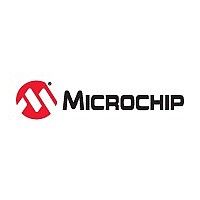DSPIC30F2020-30I/SP Microchip Technology Inc., DSPIC30F2020-30I/SP Datasheet - Page 34

DSPIC30F2020-30I/SP
Manufacturer Part Number
DSPIC30F2020-30I/SP
Description
DSP, 16-Bit, 12KB Flash, 512 RAM, 21 I/O, SDIP-28
Manufacturer
Microchip Technology Inc.
Type
DSPr
Datasheet
1.DSPIC30F2023-30IPT.pdf
(286 pages)
Specifications of DSPIC30F2020-30I/SP
A/d Inputs
8-Channels, 10-Bit
Comparators
4
Cpu Speed
30 MIPS
Eeprom Memory
0 Bytes
Input Output
21
Interface
I2C/SPI/UART
Ios
21
Memory Type
Flash
Number Of Bits
16
Package Type
28-pin SPDIP
Programmable Memory
12K Bytes
Ram Size
512 Bytes
Timers
3-16-bit, 1-32-bit
Voltage, Range
3-5.5
Lead Free Status / Rohs Status
RoHS Compliant part
Electrostatic Device
- Current page: 34 of 286
- Download datasheet (5Mb)
dsPIC30F1010/202X
FIGURE 3-4:
3.1.2
The upper 32 Kbytes of data space may optionally be
mapped into any 16K word program space page. This
provides transparent access of stored constant data
from X data space, without the need to use special
instructions (i.e., TBLRDL/H, TBLWTL/H instructions).
Program space access through the data space occurs
if the MSb of the data space EA is set and program
space visibility is enabled, by setting the PSV bit in the
Core Control register (CORCON). The functions of
CORCON are discussed in Section 2.4 “DSP
Engine”.
Data accesses to this area add an additional cycle to
the instruction being executed, since two program
memory fetches are required.
Note that the upper half of addressable data space is
always part of the X data space. Therefore, when a
DSP operation uses program space mapping to access
this memory region, Y data space should typically con-
tain state (variable) data for DSP operations, whereas
X data space should typically contain coefficient
(constant) data.
Although each data space address, 0x8000 and higher,
maps directly into a corresponding program memory
address (see Figure 3-5), only the lower 16-bits of the
24-bit program word are used to contain the data. The
upper 8 bits should be programmed to force an illegal
instruction to maintain machine robustness. Refer to
the “dsPIC30F/33F Programmer’s Reference Manual”
(DS70157) for details on instruction encoding.
DS70178C-page 32
DATA ACCESS FROM PROGRAM
MEMORY USING PROGRAM
SPACE VISIBILITY
Program Memory
‘Phantom’ Byte
(Read as ‘0’)
PC Address
0x000004
0x000006
0x000002
0x000000
PROGRAM DATA TABLE ACCESS (MOST SIGNIFICANT BYTE)
00000000
00000000
00000000
00000000
TBLRDH.B (Wn<0> = 1)
Preliminary
23
Note that by incrementing the PC by 2 for each pro-
gram memory word, the Least Significant 15 bits of
data space addresses directly map to the Least Signif-
icant 15 bits in the corresponding program space
addresses. The remaining bits are provided by the Pro-
gram Space Visibility Page register, PSVPAG<7:0>, as
shown in Figure 3-5.
For instructions that use PSV which are executed
outside a REPEAT loop:
• The following instructions will require one instruc-
• All other instructions will require two instruction
For instructions that use PSV which are executed
inside a REPEAT loop:
• The following instances will require two instruction
• Any other iteration of the REPEAT loop will allow
Note:
tion cycle in addition to the specified execution
time:
- MAC class of instructions with data operand
- MOV instructions
- MOV.D instructions
cycles in addition to the specified execution time
of the instruction.
cycles in addition to the specified execution time
of the instruction:
- Execution in the first iteration
- Execution in the last iteration
- Execution prior to exiting the loop due to an
- Execution upon re-entering the loop after an
the instruction, accessing data using PSV, to
execute in a single cycle.
16
TBLRDH.W
prefetch
interrupt
interrupt is serviced
TBLRDH.B (Wn<0> = 0)
PSV access is temporarily disabled during
Table Reads/Writes.
8
© 2006 Microchip Technology Inc.
0
Related parts for DSPIC30F2020-30I/SP
Image
Part Number
Description
Manufacturer
Datasheet
Request
R

Part Number:
Description:
MODULE DSPIC30F SAMPLE 64QFP
Manufacturer:
Microchip Technology
Datasheet:

Part Number:
Description:
MODULE DSPIC30F SAMPLE 80QFP
Manufacturer:
Microchip Technology
Datasheet:

Part Number:
Description:
MPLAB C Compiler For DsPIC DSCs
Manufacturer:
Microchip Technology
Datasheet:

Part Number:
Description:
DEVICE ATP FOR ICE4000
Manufacturer:
Microchip Technology
Datasheet:

Part Number:
Description:
DEVICE ATP FOR ICE4000
Manufacturer:
Microchip Technology
Datasheet:

Part Number:
Description:
DEVICE ATP FOR ICE4000
Manufacturer:
Microchip Technology
Datasheet:

Part Number:
Description:
MODULE PLUG-IN PIC18F4431
Manufacturer:
Microchip Technology
Datasheet:

Part Number:
Description:
IC, DSC, 16BIT, 12KB 40MHZ, 5.5V, SOIC28
Manufacturer:
Microchip Technology
Datasheet:

Part Number:
Description:
IC, DSC, 16BIT, 24KB 40MHZ, 5.5V, TQFP44
Manufacturer:
Microchip Technology
Datasheet:

Part Number:
Description:
IC, DSC, 16BIT, 48KB, 40MHZ, 5.5V, DIP40
Manufacturer:
Microchip Technology
Datasheet:

Part Number:
Description:
IC, DSC, 16BIT, 48KB 20MHZ, 5.5V, SOIC28
Manufacturer:
Microchip Technology
Datasheet:

Part Number:
Description:
IC, DSC, 16BIT, 66KB, 40MHZ 5.5V TQFP-64
Manufacturer:
Microchip Technology
Datasheet:

Part Number:
Description:
IC, DSC, 16BIT, 12KB, 40MHZ, 5.5V, QFN28
Manufacturer:
Microchip Technology
Datasheet:

Part Number:
Description:
16BIT 30MIPS DSPIC, 30F2010, DIP28
Manufacturer:
Microchip Technology
Datasheet:

Part Number:
Description:
16BIT MCU-DSP 30MHZ, SMD, 30F5011
Manufacturer:
Microchip Technology
Datasheet:










